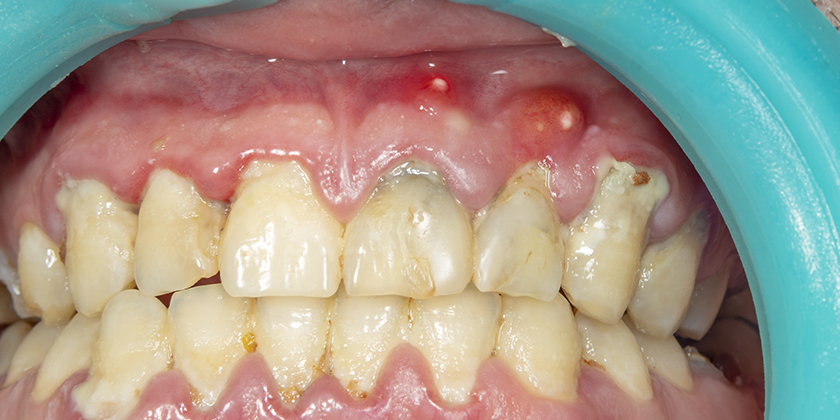Periodontal disease is one of the most common forms of dental illnesses people suffer from in the world. This condition can be managed by getting quality general dentistry services, and ensuring that one actively maintains proper dental health. Some of the symptoms of periodontal disease include teeth that fall out very easily, gums that bleed when brushing teeth, pain on chewing and halitosis. In the most severe cases, one may also develop an abscess that may extend into the jaw, a condition that may require a surgical procedure to resolve. Periodontal disease evolves through a number of stages including:
Bacterial Overgrowth
The main culprit in formation of periodontal disease is bacterial overgrowth in the mouth. It is normal to find a number of bacterial species in the mouth of a human being. However, when these bacteria become too many in number, they can cause a number of problems including halitosis and periodontal disease in the long run. The key to brushing your teeth is making sure that the number of oral bacteria is reduced.
The bacteria in the mouth metabolize food particles that are present in the mouth for a long time. This is why it’s advisable to always brush one’s teeth at least twice a day, and to also floss. This gets rid of food particles both on and between teeth to ensure that they don’t have an abundant food supply. The latter will make them increase in number exponentially.
Formation of A Biofilm
When bacteria are present in the mouth, they tend to produce chemicals which can stick to the surface of the teeth, particularly if the teeth are rough and have nooks and crannies. More bacteria can then reside in this residue, increasing the total population in the mouth. Over time, this material hardens when not removed. This then becomes known as tartar. To prevent the formation of a biofilm, regular brushing of teeth and flossing is also important. If the plaque hardens to form tartar, it becomes too difficult to remove even when you use a toothbrush with stiff bristles.
Making the surface of the teeth smooth makes it difficult for bacteria to find surfaces to stick on, which is why tooth polishing every six months is a good idea. This will reduce the chances of plaque and tartar formation.
The Spread of Bacteria Into The Soft Tissue
When the number of bacteria reaches a certain amount, it may harbor species that invade soft tissue including the gums. They may also cause recurrent tonsillitis. Invasion of the gum, particularly around the root of the teeth, causes instability of the tooth and consequently ease of falling out. This is a common reason why some people may need dental implants if they lose too many teeth this way. Sometimes, the bacteria can invade the deeper recesses of the gum, and eventually cause collections of pus within the gums. This is usually very painful, and will require major surgery involving cutting away of part of the gum bone to get rid of the pus. They may also spread into the bloodstream and affect the heart and other organs, which is a worst-case scenario in the progression of periodontal disease.
Dr Alex Rubinov offers many dental services to reverse the effects of periodontal disease, including general dentistry, implants and cosmetic dentistry. With many years of experience, he has become a renowned dental practitioner in the New York area. Contact us on (718) 253-0800 for an appointment.


